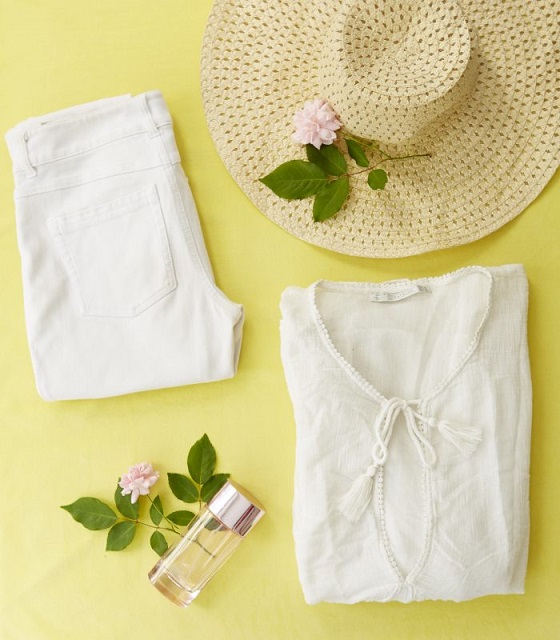One of my favorite things about living Ayurveda is how the strategies for finding harmony with nature change throughout the year.
I used to blindly follow the same protocols for food, work, and exercise all year, but with Ayurveda’s seasonal guidelines, I enjoy the variety of approaches and am much more in touch with the changes in nature and in my own body and mind. Ayurveda is like an amazing compass with which to navigate and plan the year.
Each season brings us different opportunities to take health into our own hands. In Ayurveda, the collection of recommended seasonal behaviors is called ritucharya (ritu translates as “season” and charya means “behavior”). Knowing about ritucharya and following the guidance it provides has made a huge difference in my own health, and that of my clients and students. It’s so empowering to finally know what to do when—and why.
The summer season, according to the ancient Ayurvedic texts, runs from mid-May through mid-September. It is the time of the worst natural health. That is because vata dosha, a bioforce consisting of air and space that is responsible for movement in your body and mind, is at its peak. Vata dosha is responsible for 80 different potential imbalances in your body (whereas the other two doshas are only accountable for 40 and 20, respectively).
A key concept in Ayurveda is that of the fundamental unity of the microcosm (your individual mind/body) and the macrocosm (the universe outside). Whatever is going on outside directly impacts you. And Ayurveda’s recommendations are astutely designed to help you achieve balance all year round.
Here are five ways Ayurveda advises to help you stay cool and calm this summer:
1. Eat light, easily digestible, moist foods.
In summer, since there’s so much heat outside, your body’s inner digestive fire reduces to help you stay balanced with the atmosphere. Digestion is weakest specifically from mid-July through mid-September.
When you eat light, moist, easily digestible foods, your body receives digestive support it appreciates—and gains much needed moisture to help balance out all the dryness in the atmosphere during this time.
2. Enjoy more restorative forms of exercise.
When you exercise a lot in summertime, you can easily overheat and become exhausted as a result. In summer, because your digestive capacity is a lot lower, you naturally don’t want to eat as much. When you don’t eat a lot, you naturally don’t feel as energetic.
Therefore, in the summer, you are advised to enjoy more relaxing forms of exercise, like restorative yoga classes and poses that are still and meditative. This is the time to enjoy walks in nature. You can also do gentler forms of exercise, such as tai chi, less intense Pilates workouts, and swimming.
If you’re a marathon runner, this is a great time to cross train to tone your muscles and protect your physical strength for the winter and spring months, when you have more natural strength and endurance.
3. Stop trying to lose weight.
Because there’s already so much heat in summer, this isn’t an effective time to lose weight. When you try achieving “the perfect bikini body” in the summer, with intense exercise and heating foods, you can easily overheat. This could potentially lead to conditions like heartburn, hyperacidity, and other heat-related problems. Losing weight during this time is not worth the risks.
The good news is that Ayurveda recommends a lighter diet during this time, so the weight you’re advised to take off in the springtime (the best time to lose weight) won’t easily come back in summer.
4. Go on retreat.
Summer vacations are great opportunities to have retreat-like experiences, where you can relax, reflect, and conserve energy by spending more time in quiet contemplation and meditation. It’s best to go where you can ideally remain in one location. Silence has a profoundly calming effect on vata dosha. Also during this time, take care to ensure you don’t have to travel too much via plane, train, car, bus, or other transportation. This is the time to pull inward.
Ayurvedic sages recommend staying in cool places in summer where you can visit gardens and be near water. This is poetically expressed in the Ayurvedic text Ashtanga Hrdayam:
“Spend time in houses around which bunches of flowers and grapes are hanging from creepers, sheets of cloth spreading sweet-scented water are arranged to fan the air, bunches of tender leaves and mango leaves hanging all around. Sleep on a soft bed prepared with beautiful flowers. Spend the long summer days remaining inside houses that have fully blossomed flowers suspended all around, that are cooled by water fountains with water scented by fragrant herbs.”
Isn’t that beautiful?
5. Wear white.
In summertime, wear loose-fitting, ideally white or light-colored clothing, with white pearls, hats, and sunglasses. Pearls are recommended, because they’re soothing and cooling, particularly if you have burning or heat-related conditions such as heartburn, hyperacidity, or shingles. White and light-colored clothing is not only a practical way to protect yourself from the intensity of the summer heat; it also promotes mental peace, optimism, clarity, and all of the other qualities associated with sattva, an Ayurvedic quality of the mind responsible for giving you inner peace and calm.
Enjoy following Ayurveda’s summertime wisdom to stay cool, calm, and collected this season.
Wishing everyone a wonderful summer!
~
**This piece has been adapted from Ananta’s bestselling book, The Ayurveda Way: 108 Practices from the World’s Oldest Healing System for Better Sleep, Less Stress, Optimal Digestion, and More.
~
Relephant:
Change your Mind, Change your Life with These 3 Ayurvedic Practices.
~
Author: Ananta Ripa Ajmera
Image: Copyright © 2017 Liz Daly. From The Ayurveda Way, used with permission from Storey Publishing.
Editor: Yoli Ramazzina
Copy editor: Nicole Cameron
Social editor: Khara-Jade Warren







Read 0 comments and reply